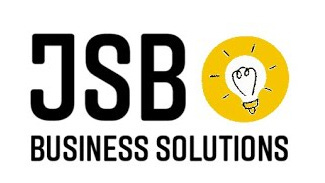Entrepreneurship is inherently rewarding because of the continuous journey of learning, growth, and leadership development it demands. I believe those who truly find fulfillment in building a business would agree that it’s like a personal and professional development program wrapped in a compensation plan. This is particularly true in the early stages when you're a “team of one,” free from the complexities of managing different personalities, households, and interests.
However, when you decide to scale your business, you'll eventually need to master the art of cultivating meaningful partnerships and implementing systems to manage the challenges of adding new team members. Two essential lessons that every entrepreneur must learn in order to genuinely scale and transition from being an operator to becoming a CEO are: documenting your process and balancing your emotional attachment to your business partners and team.
Documenting Your Process: A Foundation for Growth
One of the most pivotal actions an entrepreneur can take is to document their journey. Many new business owners overlook this step, assuming it’s not immediately necessary. However, documenting your activities, successes, and challenges is essential for laying down a track for others to follow, especially as your business begins to scale.
Think about it: as your business grows, you won’t have the time or bandwidth to mentor 25, 100, 500, or even 3,000 partners or employees directly. But you can build a solid foundation by sharing your journey — not just the end results, but the steps you took to get there. This process of showing rather than just telling builds confidence and competence in your team. New partners, who may be excited but inexperienced, need a clear roadmap to follow. They need to see what works and how to achieve success — not just hear about it.
By sharing your daily activities, Key Performance Indicators (KPIs), and how you consistently meet goals, you create a culture of accountability and duplication. When people see that your method works and they can replicate your activities, it saves you time and builds credibility for your business. It's a way of setting expectations and creating an environment where growth is not only possible but expected.
Many entrepreneurs dismiss this concept early on because they don’t see its immediate value. However, leading by example is the essence of successful leadership. Your team doesn’t just want to hear about your achievements; they want to see how you achieved them. This documentation builds trust, clarity, and an internal culture that supports sustained growth.
Here's a bullet-pointed summary of strategies and tools entrepreneurs and leaders can use to document and share their process:
Daily KPI Tracking:
Post your daily KPIs in a text group or GroupMe to keep your team updated on progress.
Celebrate accomplishments publicly to reinforce positive behaviors and build motivation.
Project Management Tools:
Use tools like Trello, Asana, or Monday.com to organize and track tasks, workflows, and deadlines.
Set up automated reminders for recurring tasks to maintain consistency.
Collaborative Documentation:
Create shared documents in Google Docs or Notion to track processes, share insights, and collaborate in real time.
Use Google Sheets for tracking progress and analyzing data with your team.
Behind-the-Scenes Sharing:
Post video updates on platforms like YouTube or internal channels to share your journey, challenges, and achievements.
Create tutorials or screen recordings to visually demonstrate how you accomplish specific tasks.
Social Media Engagement:
Share regular updates on LinkedIn, Instagram, or Facebook about your business milestones, learnings, and day-to-day activities.
Post personal reflections, struggles, and wins to give a transparent view of the entrepreneurial process.
Standard Operating Procedures (SOPs):
Document key processes and workflows in an SOP format, making it easy for new team members to understand and replicate your approach.
Share SOPs in your team collaboration tools or as part of your onboarding materials.
Celebrating Small Wins:
Acknowledge small victories in your team’s daily activity, whether through public praise in group chats or weekly roundup posts celebrating accomplishments.
Regular Check-ins:
Hold weekly or bi-weekly meetings to review team progress, revisit goals, and ensure alignment.
Encourage the sharing of personal reflections on the work and progress made during these check-ins.
These strategies and tools help foster transparency, build a culture of accountability, and ensure that your process is clear and replicable, ultimately helping to scale your business more efficiently.
Balancing Attachment: Managing Your Expectations with New Business Partners
Another crucial lesson in entrepreneurship is learning how to balance your attachment to new partners and team members. When you bring on new people, it’s natural to want to see them succeed. You pour your energy into mentoring them, offering advice, and sharing your expertise. But sometimes, despite your best efforts, the results don’t come. This can lead to frustration and burnout if you're not careful.
A key point to understand is that not everyone you bring into your business will have the same level of commitment, drive, or capacity to succeed. The reality is that only a small percentage of individuals will rise to the level of a market maker — someone who moves the needle and drives real change in your business. According to studies, only about 5-10% of people consistently earn six figures in the U.S. Most people don’t operate with the same mindset, work ethic, or hunger to succeed as those who truly excel financially.
So, what does this mean for you as a leader? You can’t afford to get too attached to every person who comes into your business. Instead, you need to detach from people’s words and focus on their actions. Do they show up to training? Do they take assignments seriously? Are they proactive in learning and applying new skills? If they aren’t, it’s a signal that they may not be ready to fully invest in the business, no matter how much you want to help them succeed.
Create small tests for your new partners. Ask them to show up for trainings, engage in team activities, or complete assignments. Praise them for every step forward, but detach emotionally from the outcome if they aren’t willing to put in the work. Actions speak louder than words, and you need to see consistent effort before investing your heart and soul into a person.
Remember, not everyone deserves to win in business. It’s not about how much someone talks about wanting success, it’s about whether they’re willing to pay the price — to put in the time, the effort, and the dedication required. You can lead a horse to water, but you can’t make it drink. If they’re not willing to do the work, it’s not your fault, and you shouldn’t feel brokenhearted.
In the long run, detaching from negative energy and focusing on those who are committed will help you build a team that drives success. Think of it like a relationship — if you're constantly complaining about your current partner, you're sending out negative energy that will repel the right people.
Don’t let frustration with underperforming partners cause you to push away those who are aligned with your mission. Your energy and focus should go toward those who are ready to embrace the mission and grow with you — the ones who are genuinely invested and excited about building something meaningful together. The right people will be drawn to your energy, just as the right partner will be drawn to a healthy, supportive relationship.
Conclusion: Setting the Foundation for Scalable Success
Scaling a business requires clear communication, consistency, and leadership. By documenting your process and sharing your journey with your team, you not only create a blueprint for success but also build a culture of transparency and accountability. This empowers your partners to follow in your footsteps and achieve their own successes.
At the same time, learning to balance attachment and detach from uncommitted partners ensures that you don’t waste time or energy on individuals who aren’t ready to put in the work. Stay focused on those who are hungry, coachable, and willing to put forth the effort necessary to move the business forward.
Building a business that can scale beyond you requires creating environments of opportunity, inspiring commitment, and making sure the right people are aligned with your mission. Keep documenting, keep leading by example, and keep focusing on the activities that will get you and your team to the next level.
If you're ready to take the next step and implement these strategies in your business, contact JSB Business Solutions Group for personalized guidance, strategy sessions, or assistance with building the systems and culture needed for scalable success. Let’s work together to create a clear path forward and unlock your business’s full potential.
If you’re ready to grow… subscribe, schedule a meetup, or keep showing up.
As an aside. Part of the reason why we launched on this platform is because we want to promote other entrepreneurs and grow givers. We’d love to hear your story.
The world around us wasn’t built by the exceptional. It was built by everyday people who were willing to do exceptional things. Let’s build something together.

Thanks for reading The Grow Givers Project! Subscribe for free to receive new posts and support my work. And remember, sharing is caring.
Join me for my next live video in the app
















Share this post